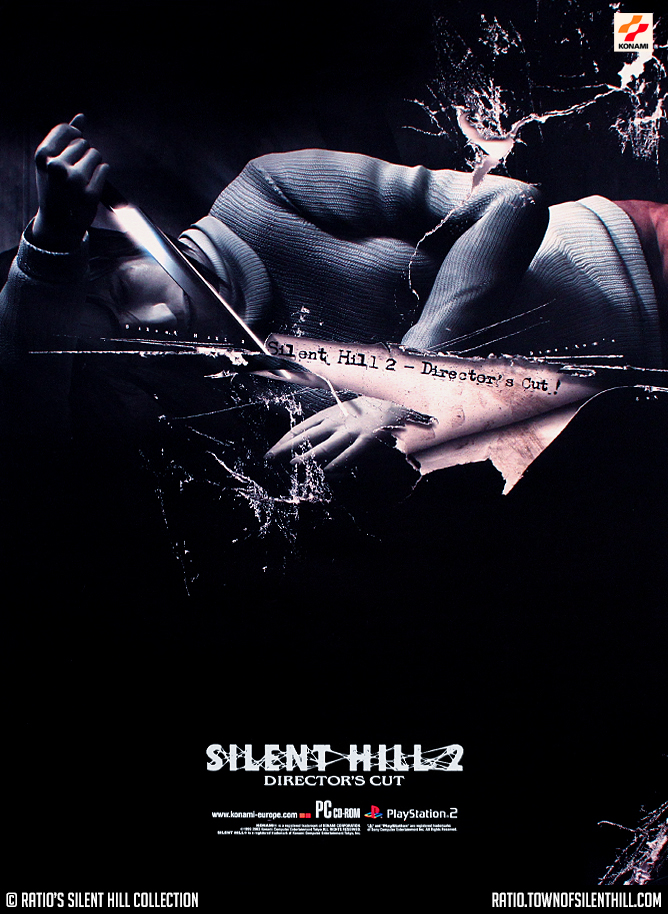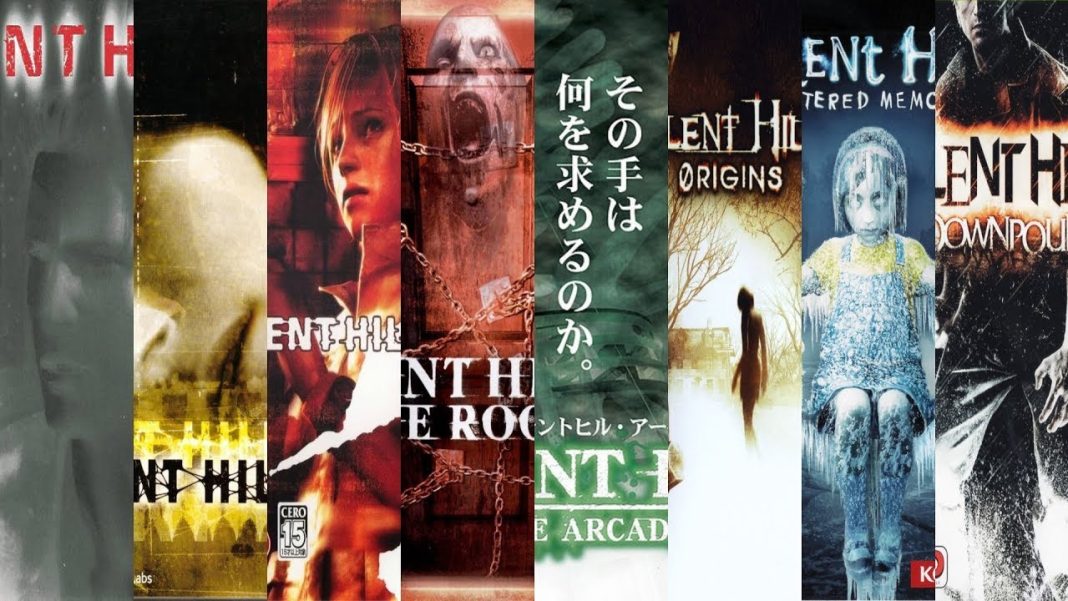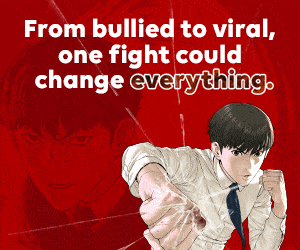Silent Hill will never be the same as it used to be, and that’s something that we’ve all got to accept.
For the uninitiated, Silent Hill is a legendary psychological horror video game franchise, dating back over 20 years to the original PlayStation. Multiple entries in the franchise (namely the first three games, particularly the acclaimed classic Silent Hill 2) are considered to be some of the greatest video games of all time, even outside of horror circles. They’re often considered to be essential to changing the opinion on whether video games could be classified as ‘art’, and generally Silent Hill is a beloved series with a consistent fanbase. However, from 2015 until 2022, the series was basically dead in the water.
The initial four games in the series were created by a group of creatives named Team Silent. Operating as its own development division within Konami Computer Entertainment Tokyo, it consisted of a lot of the anti-social personalities within Konami and those who couldn’t fit into their other pre-existing projects. Well-known members of Team Silent include sound director Akira Yamaoka, creature designer Masahiro Ito, and writer Hiroyuki Owaku. Inspired by artistic works outside of video games such as the films of David Lynch, the novel Crime and Punishment by Fyodor Dostoyevsky, and industrial rock music, Team Silent was a collection of oddballs and creatives who put whatever they wanted into the Silent Hill games they work on. What resulted is one of the most unique series in gaming, with it’s own distinctive way of storytelling that many games have tried and failed to imitate.

The first Silent Hill game, released in 1999 for the PlayStation, follows everyman Harry Mason attempting to find his missing daughter in the mysterious town of Silent Hill. He finds himself on a horrific journey, fighting against a cult trying to use his daughter for a terrifying ritual. Silent Hill 3 is, funnily enough, a direct sequel to the first game. Released in 2003 for the PlayStation 2, it focuses on now-teenage Heather Mason, facing against the cult that kidnapped her once and for all. These are both fantastic games, with incredible atmosphere and fantastic storytelling, and effectively tell the ‘main story’ of the franchise. This narrative would be revisited in later games – Silent Hill: Origins for the PlayStation Portable in 2007, and Silent Hill: Shattered Memories for the Wii in 2009. The first and third games were adapted into two films of varying quality, Silent Hill (2006) and Silent Hill: Revelation. Revelation is not very good, and I might be biased because 3 is my favorite in the series, but veer as far away from that movie as you can.
The most beloved title in the series is Silent Hill 2. Often acclaimed as potentially the greatest horror game of all time, it has little to no times to the ‘main narrative’ of the series. Instead, it focuses on the deeply unwell James Sunderland searching through Silent Hill for his seemingly deceased wife. This is a dark, messed up game. It covers themes of abuse, misogyny, violence, mental illness, trauma and suffering. It’s also quite simply a masterpiece, a true achievement for the medium of video games. It’s one of those rare games where everything feels entirely in sync with each other, and Team Silent really seemed to go above and beyond to craft this narrative. It’s only gotten better over time, aging beautifully. This game has it’s own mini-fanbase who don’t even look at the other games of the series. While I think they’re missing out, I also get it. Silent Hill 2 is the type of artistic feat that you look at and go ‘Oh, this is one of the best things made by humanity, isn’t it?’
Team Silent’s last title in the series was Silent Hill 4: The Room. Initially developed as horror game titled Room 302, it was later retitled to make its connection to the larger franchise more apparent. This game plays very differently to previous entries, is largely set outside of the titular location, and doesn’t pack the same storytelling punch as the first three. It’s a great game in its own right, but suffers in the shadows of it’s predecessors. It’s also one of the few Silent Hill games you can play on modern software, as it’s available for legal purchase on Gog. The second and third games in the series were ported as the ‘HD Collection‘ to Xbox 360 and PS3, but the collection has plenty of flaws that I could be here all day talking about. If a Konami executive happens to read this, please put the games on Steam or some other more accessible platform. Currently, the only games in the series available on Steam are Silent Hill: Homecoming and the Silent Hill 2 Remake.

According to an artist working on Silent Hill: Homecoming, Team Silent was disbanded by Konami because their parent company wanted western developers to make the games instead. There has also been extensive rumors that Konami wanted to cut down on their internal production costs, which seems to reflect with Konami’s current developmental approach. There’s also mutterings that Team Silent was disbanded because they simply no longer wanted to work exclusively on Silent Hill games. Whatever the reason may be, the group was disbanded in 2004. The members of Team Silent went on to do various projects – examples include Keiichiro Toyama, who went on to create the Siren game series, or Suguru Murakoshi, who went on to join Kojima Productions. Later games in the series were developed by non-Japanese developers such as Climax Studios, Vatra Games and Double Helix Games. Most of them lacked the critical and commercial success of the Team Silent games, and the last full-length game title in the series up until this year was 2012’s Silent Hill: Downpour.
I would be remiss not to mention P.T in this article. Standing for Playable Teaser, it was a short, mysterious demo created by industry legend Hideo Kojima (Metal Gear Solid). It’s also amongst the scariest things I’ve ever played. It’s genuinely terrifying, especially if you’re like me and hate the sensation of being followed. As it turns out, it was a teaser for a new game in the franchise, titled Silent Hills. It was to have artistic contributions from filmmaker Guillermo Del Toro (The Shape of Water) and star Hollywood actor Norman Reedus (The Walking Dead). However, the game’s development was cancelled when Kojima had a massive falling out with Konami during the production of Metal Gear Solid V: The Phantom Pain. As a result, P.T was taken off the PlayStation store, and the larger franchise entered a period of hiatus, with no news for roughly seven years. As of writing, P.T is the last game in the series to be mainly developed in house by Konami.

That leads us to today, where we are now. In 2022, Konami officially announced a remake of Silent Hill 2, as well as a film adaptation from Christophe Gans (Director of the first Silent Hill movie). Silent Hill 2 Remake will be out within days of this article’s publication, and looks to be a critical success, much to the shock of naysayers. Konami has announced at least two more games, made by various development teams. This includes the mysterious Silent Hill f, the first game in the series to be set outside America, written by acclaimed visual novel writer Ryukishi07 (Umineko: When They Cry). Konami appears to be committing to reviving it as their flagship horror franchise. It’s a bit of a monkey’s paw situation though, because they’re outsourcing development to other studios regardless of the studios’ track record. This means a lot of things, but mainly that the output will be less consistent. For every great game that understands the franchise as well as the new remake from Blooper Team, you get something like this year’s Silent Hill: The Short Message, which fell short of reaching the standards set by the earliest games in the franchise inspite of a solid attempt.
One thing is for certain, however – Team Silent is gone, and has been gone for far longer than they ever existed. Konami will never take the same approach with the franchise again, especially in the modern-day game industry which often punishes risk and those that go against the grain. The version of Silent Hill we know and loved, defined by the first four games in the series, will not be coming back. I think the industry in general is also different now – with shareholders, fanbases and tech billionaires to appease, AAA games are even more unlikely to take the kind of bold artistic risks that Team Silent did. Indie games however, have that opportunity. They carry that proverbial torch. By outsourcing to indie studios, Konami is potentially opening a door for that type of reinvention and passion, or as much as that door can be open in this day and age. Their current tactic gives more creators and fans inspired by the series the potential opportunity to work on it themselves. Who knows? We might end up getting more excellent Silent Hill games too.













